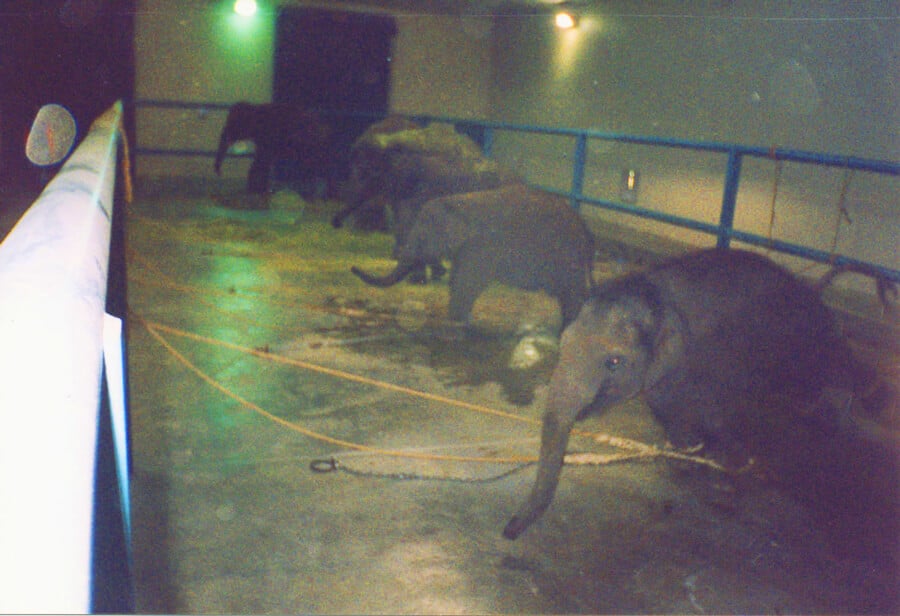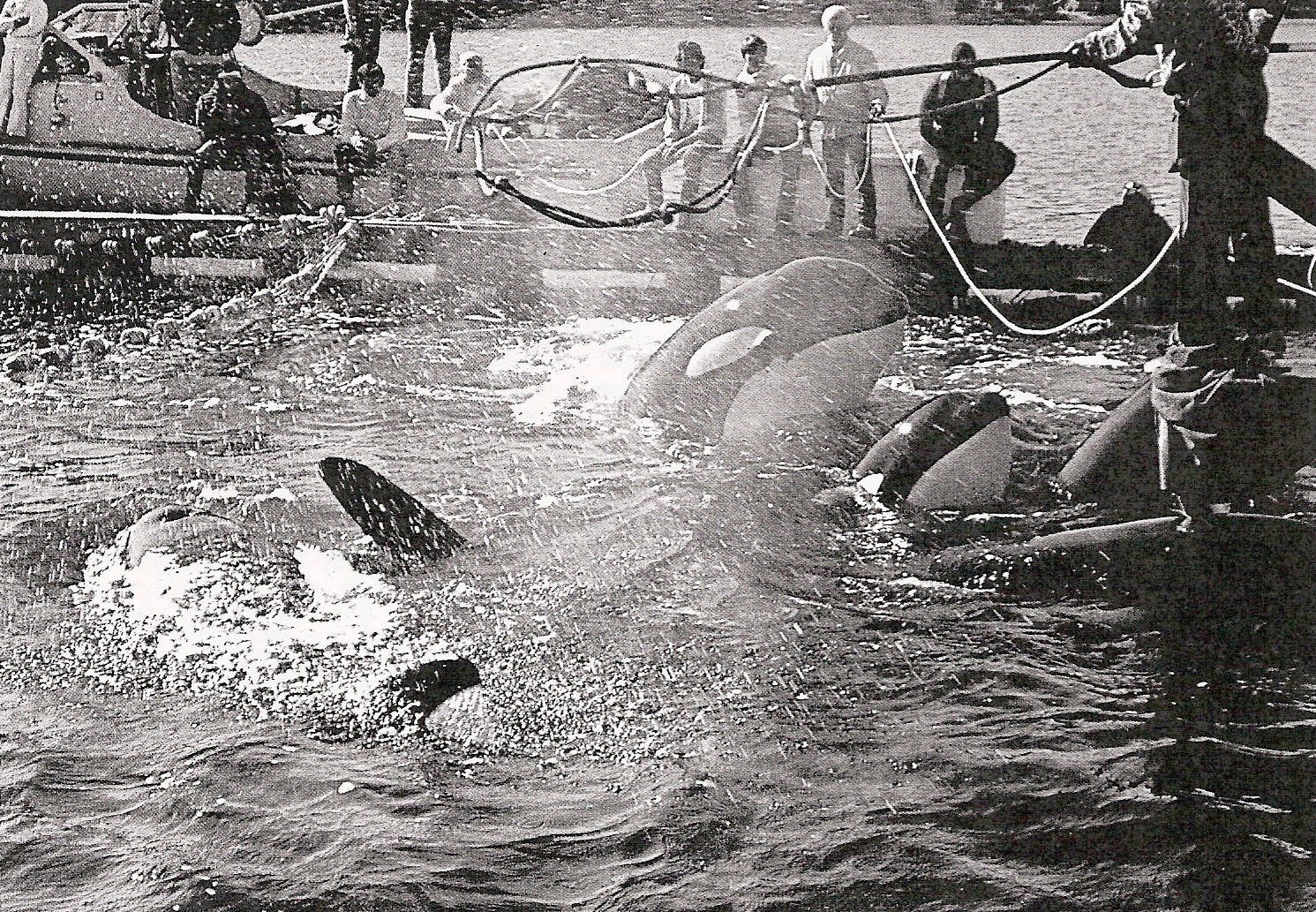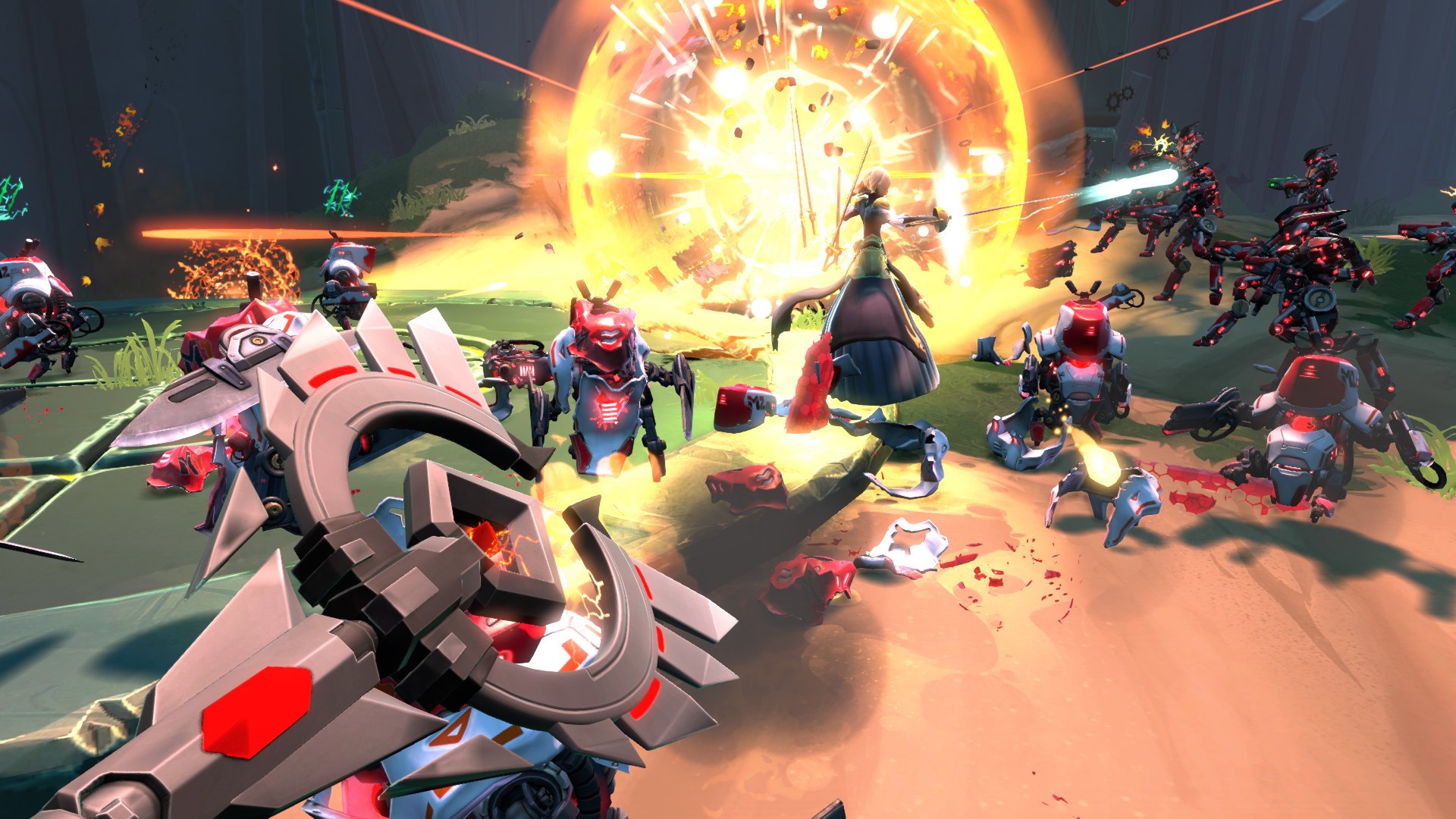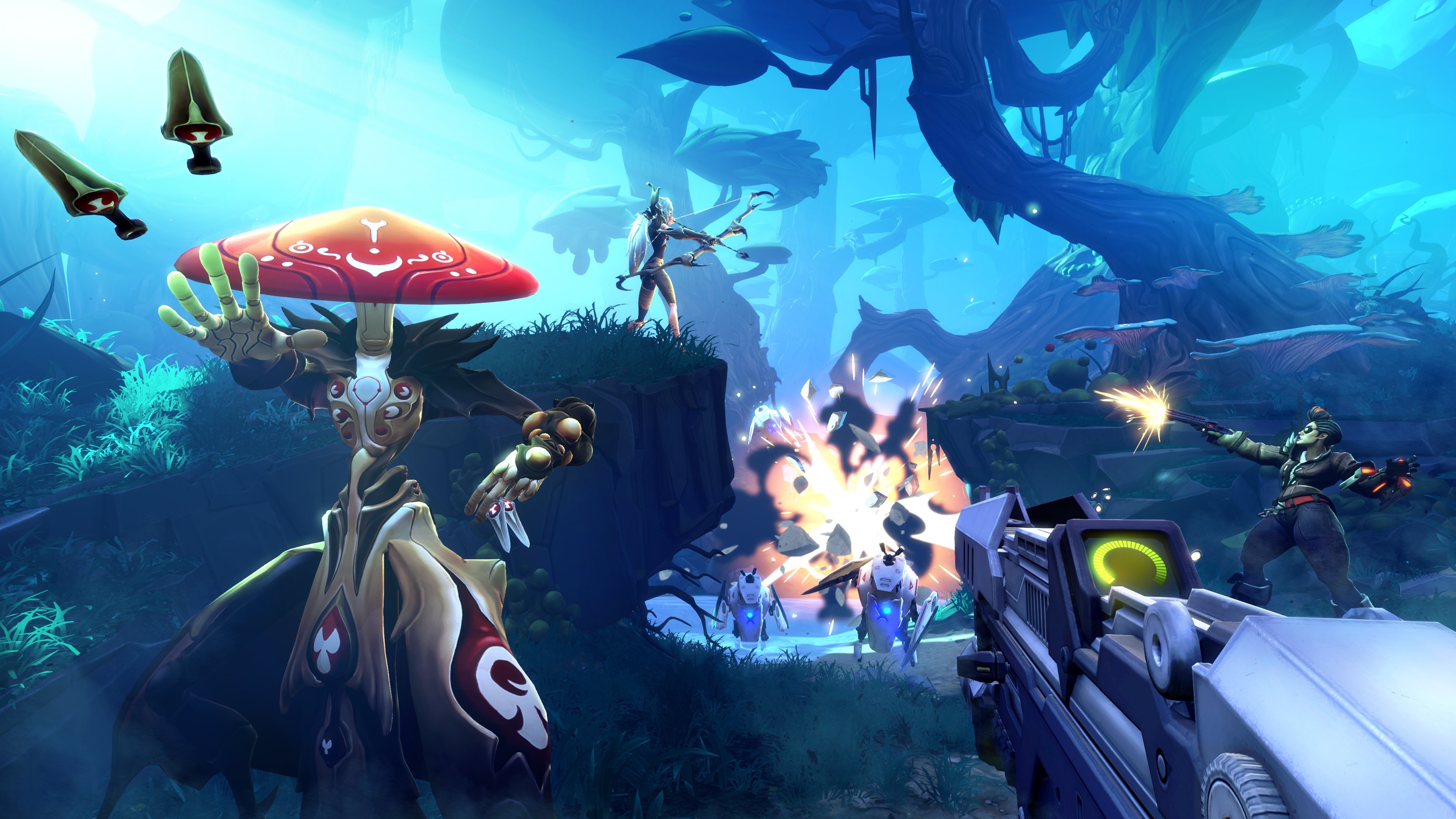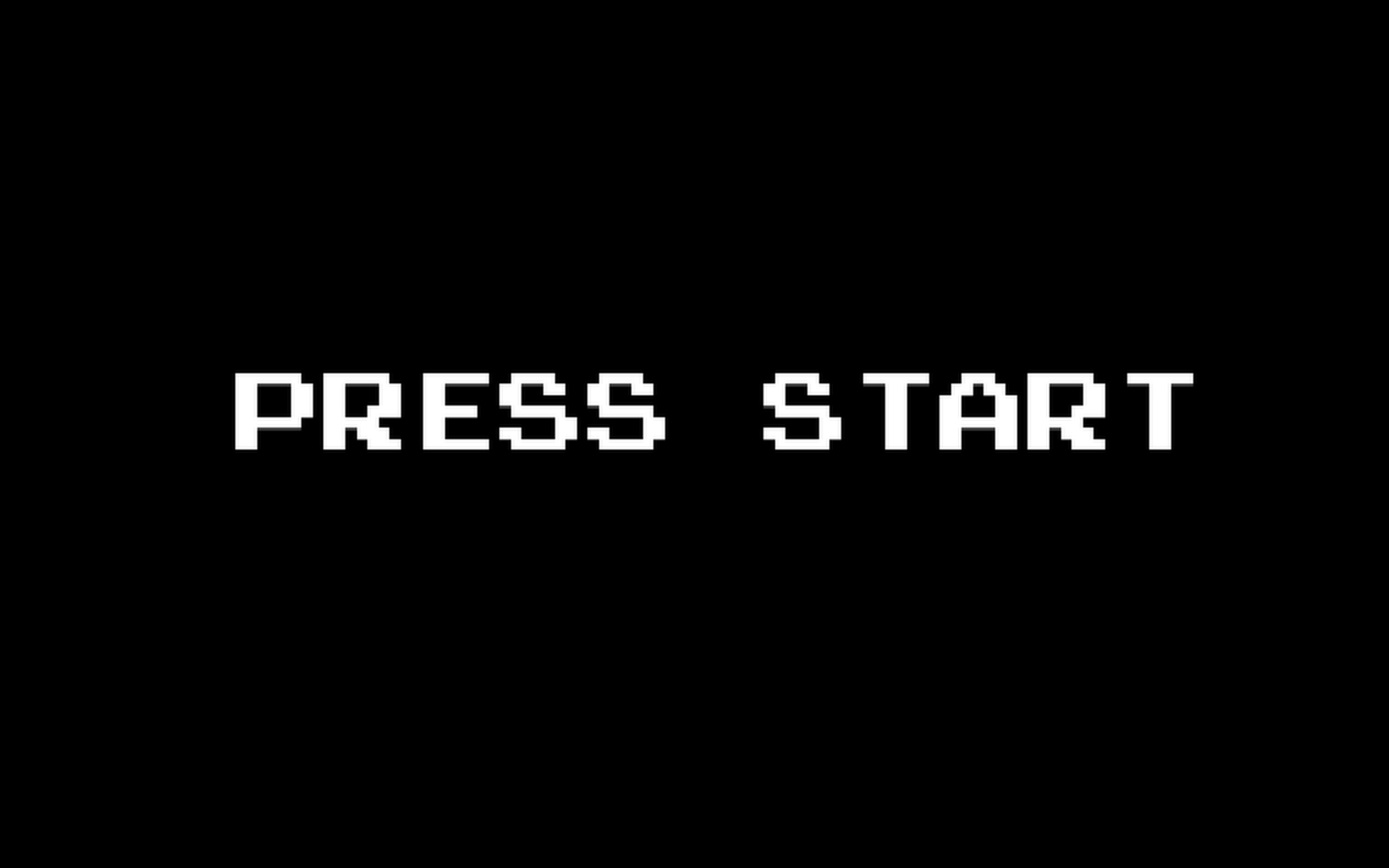Another Libertarian has announced plans to run for U.S. Senate in Florida. Paul Stanton announced that he will place his name on the Libertarian primary ballot, joining fellow candidate Augustus Sol Invictus. Personally, while I always vote for a Libertarian on the ballot if there's one available, I couldn't bring myself to vote for the circus act that is Invictus. So for me, this is good news. Stanton seems like a much more reasonable option for Libertarians looking to vote in a Senator. According to Independent Political Report's Tom Knapp, Stanton says he has the resources to qualify for the ballot.
Bio from Stanton’s
Facebook page:
Paul Stanton is honored to run as a candidate to represent the State of Florida in the U.S. Senate. A world-traveled individual, Paul has been living in Florida after serving in the U.S. Army and roaming the continental U.S. as an information technology specialist. After six years of service and a tour of duty in Iraq, Paul received his honorable discharge from the U.S. Army and immediately adopted a philosophy of responsible service to community. He was the founding member of the Indiana University-Purdue University Fort Wayne Students Against War organization and led protests against violence and interventionism in Iraq and Afghanistan. At one point he even sued the airport for the right to protest the use of overly-invasive body scanners in airports. As your Senator, he will fight for the rights of everyday citizens to preserve the freedoms that are quickly being eroded by corrupt partisan politics.

Paul is committed to an agenda based on the principles of individual freedom and a common sense-approach to taxes. As Senator, he promises to advance a platform of non-aggression, seeking to end the United States involvements in the Middle East and mitigating the harm we have already caused. Additionally, he advocates for an end to the “War on Drugs” and incarceration of users, and instead advocates for treatment and education for those who are addicted. Paul will also demand an overhaul of the federal tax system, where even those who are poor are still overburdened with taxes on the fruits of their labors through a “War on the Poor.” A resident of Deland, Florida, Paul lives
surrounded by family, friends, and neighbors who are proud to call him one of their own.
According to his Twitter, @StantonForLiberty, his stance can be simplified into "Anti-violence, anti-coercion, anti-fraud". So what does this mean, and where does he stand on the issues?
On Business Taxation:
Businesses leave the United States for a multitude of reasons, one of which, is corporate taxation. While corporate taxation can contribute to stifling business and job growth, this is especially true for small businesses. Large corporations are actually in a much better position to handle taxation because of their ability to pay it and/or move operations offshore as to avoid the taxation. Small businesses that are incorporated and looking to grow are not awarded those same privileges.
The first step to fostering competition is producing a more free market with lower government intrusion and taxation for small businesses. If elected, I will propose to cut taxes for companies with less than $500,000 in revenue completely, and work to reduce taxation for all businesses as much as possible. This reduction for small businesses is a positive first step, as small businesses will be able to take that saved money and invest it in growing their business and expanding the economy.
In addition to lowering tax rates for small businesses as a first step to reducing taxation for businesses across the board, I will work to eliminate the taxation on repatriated profits from overseas. There is over $2.1 trillion dollars sitting overseas that should be in the United States if it were not due to our tax policies. I will work to bring those dollars back here so they can be invested and help grow the economy.
On Drug Reform:
The “War On Drugs,” has become a device through which those in power have taken our liberties from us, and provide only fear and oppression in return. By bringing this war to an end, we will be able to remove the roadblocks that prevent addicts from getting help, and end the pattern of selectively-enforced felony convictions created by the “War on Drugs” that oppress minorities, the poor, and those not well connected, and that encourage drug users to retreat in fear from their families, their aspirations.
To this end, I support the immediate decriminalization of all drugs, the end of mandatory-minimum sentencing for drug-related offenses, and the end of policies that mandate costly and ineffective drug testing for recipients of welfare and other forms of government aid. I also support reducing tax burdens for private rehabilitation programs in order to make them affordable for more people, and to protect the privacy of those suffering from drug addiction. Additionally, I support returning the right to vote nation-wide to those convicted of nonviolent drug-related offenses.
On Poverty Alleviation:
While many politicians pay lip service to helping the poor and disadvantaged, the policies they have put in place actually look more like a war on the poor than a war on poverty. Creating opportunities for all Americans, especially the most marginalized in society, must be a priority. Instead, the focus of policymakers has been on creating a system by which the rich are able to socialize their losses across society at the expense of the poor and working class. We must have a strong economy that provides opportunities for Americans from every walk of life, not just the corporate elite.
The first step that should be taken is to eliminate FICA taxes for all workers under the poverty line. While this will certainly help the individual worker, this will also help employers and encourage job growth. The disenfranchised in society also rely heavily on government services that often produce more waste than results. Direct charitable help to the poor should be encouraged, and this can be done by instituting a dollar for dollar tax rebate for charitable donations. This will help eliminate a lot of the waste that is incurred by federal programs designed to provide services to the poor, while also encouraging individuals to be more charitable.
In order to create opportunities to tackle poverty, we must foster the environment that allows small businesses to thrive. I will work to cut down the bureaucracy instituted by many federal agencies that price small businesses out of the market. The federal government stifles jobs by forcing regulations crafted by the corporate elite that help large corporations push small businesses out of competition. So while politicians will try and sell every regulation as protection of the individual, often times they protect monopoly like conditions for big corporations. In addition, while lowering taxes for all businesses should also be a priority, we need to start with eliminating the corporate tax for small businesses so they can invest in their businesses and their communities. In addition, eliminating taxation on repatriated profits from overseas could potentially bring over $2.1 trillion sitting overseas back to the United States.
One of the largest problems facing all Americans is the symbiotic relationship between the federal government and big business. Crony policies, such as corporate bailouts, contribute to massive inequality within our country. In addition to bailouts, subsidies pick winners and losers in the economy, distorting the market. In the case of energy subsidies, they can even have an effect on the environment. I will work to reform crony policies, that again, only go to serving the small minority of corporate elite at the cost of the working class and working poor. We must build a truly free market system in which businesses succeed and fail on their own accord, not by government favors and contributions.
The current policies set in place do more harm than good exacerbating inequality and choking off innovation and growth. We must work to make these changes to truly lift people out of poverty by providing the conditions necessary for a successful economy to thrive. A truly free market with less government intervention in the marketplace and less pressure on the poor can produce not only a stronger economy, but a more equitable society. We can certainly not guarantee equality of result through government intervention, but we must work to provide equality of power to all individuals to empower those currently marginalized to produce a better life for themselves and their families.
On Ending Crony Capitalism:
The market is not what is wrong with the United States economy, but the perversion of the market in favor of a government owned by big business in a symbiotic relationship between the two. Large corporations lobby government and contribute large sums of money to campaigns in order to have their bills passed through congress. Many regulations are made not to protect the consumer, but to protect big business from competition. Competition is what makes the market work, and without it, monopolistic conditions rise that distort the market and further inequality. We should not fight against calls for equality because many of the solutions presented by the current duopoly involve the state, but we should recognize that inequality and, in many cases, poverty are caused by crony policies that seek to give an advantage to one business over another.
One large aspect of cronyism was on full display for the economic crash in 2009. The Federal Government took unprecedented measures to bail out large financial firms that were seen as too big to fail. The result was years of mal-investment in the real estate sector subsidized by the Federal Reserve’s low interest rate policies was not allowed to be properly liquidated in the marketplace and the risk taken on by these firms was rewarded. This is a major diversion from the free market. I am in favor of free market policies that allow businesses to grow and thrive, as well as fail when they take on too much risk or function ineffectively. The federal government should not be in the business of propping up failed firms in the economy.
His Monetary Policy:
There is a long history within the United States of strong opposition to the establishment of a national bank, and that battle lives on today. The Federal Reserve has devalued our currency through quantitative easing and low interest rate policies, erasing the savings of many hardworking Americans. Loose monetary policy has been an aid to a growing federal government, using the funds for wars and bailouts. I advocate a complete and full audit of the Federal Reserve as a first step to bring transparency to an organization that largely operates in the shadows. We must challenge the notion that artificial bubbles created by easy money policies will be solved by more easy money policies when the bubbles finally burst.
Interest rates are meant to be set in the marketplace, and currency is meant to hold intrinsic value. Today, our currency is backed by nothing more than the promise of the federal government there is value. I will work to deregulate the monetary system as to allow multiple currencies to compete with each other. This system will greatly reflect the market for credit cards, with different banks offering different banknotes. Ultimately, competition will foster the stronger currencies to trump the weaker currencies. The marketplace should determine the value of the currency and that cannot be done as long as the Federal Reserve maintains a monopoly on our monetary system.
As such, we must recognize the rise of bitcoin and other digital currencies and reject calls for government oversight and regulation. If we believe in the free market of goods and services that helped grow the United States into one of the largest industrial nations in the world, we must recognize that the free market in interest rates and currency must be reestablished.
On Peace:
As an Iraq War combat veteran, I have seen that our military ventures overseas have not brought us greater liberty or safety. Instead, they have bred resentment and hatred of our policy overseas, and have provided a convenient pretext for those in power to chip away at our civil liberties.
In an ever changing world politically, socially, economically, and technologically our current policy of military interventionism is a costly and dangerous heavy hand to use to confront real and potential threats to American safety. Not only is it costly in dollar value, with military spending comprising over half of the federal discretionary spending budget, but it is also costly in political capital. Frequently our nation has been criticized for imperialism at home and abroad. Too often Congress has been able to use the threat of terrorism as an excuse to erode liberty by suspending constitutional rights. I think we, as a nation, are weary of costly, prolonged, and fruitless military campaigns overseas.
Our foreign policy is also costly in human lives, and the goodwill of those we claim to be trying to help. During my tour in Iraq, my friend and fellow soldier shared an epiphany he had that one cannot win the hearts and minds of anyone, friends or foes, while pointing a gun at them. Rather it closes the minds of those who may have once welcomed the idea of American aid and fosters the distrust, fear, and anger that terrorism and other violent ideologies thrive on. This negative sentiment abroad is pushed further with our growing policy of using drones to “selectively target” suspected enemies. News and social media has been flooded with reports of military drones killing and maiming thousands of civilians in Iraq, Pakistan, Yemen, and elsewhere. These are people that often had no connection to terrorism. Violence begets violence. This is not conducive to creating a more stable, peaceful world wherein everyone can have a greater opportunity to prosper.
I stand behind promoting foreign policy that focuses on compassion and understanding. The reality of threats to the security of American citizens should not be justification for the wanton use of military intervention or the erosion of our civil liberty. I support and will work towards the reduction of our military presence overseas in an effort to promote diplomatic solutions and encourage the return to a positive view of America, globally and domestically. I will strive to end our reckless use of drones overseas that have tragically killed so many innocent people (including the Denver-born American child, Abdulrahman Anwar al-Awlaki) in the name of fighting terrorism. And I will endeavor to rebuild the bulwark protecting our freedom that has been torn down by claims of national security.
On Social Security:
The United States government made a promise to workers to provide social security benefits in retirement, and that promise must be kept for retirees and those that have significantly paid into the system. The government’s promise has essentially made many retirees dependent on the current system, and we cannot break those promises to retirees. We must work to make the social security system solvent again, though, instead of using appropriated funds for general government spending. In addition, we must explore different options for young workers that may be a more efficient system.
One aspect of social security that needs to be addressed is the double taxation of social security benefits. Social security contributions are taxed and then payments to retirees are taxed again. This system of taxation makes no sense and reduces benefits to seniors who we have already committed to. Even more than that, though, this taxation of social security benefits allows the Federal Government to appropriate social security money to other parts of the government. I will work hard to end this system of double taxation.
Endorsements:
Paul Stanton has received the following endorsements:
People
Gary Johnson - Libertarian presidential nominee, former Governor of New Mexico
Bill Weld - Libertarian vice presidential nominee, former Governor of Massachusetts
Jim Gray - Jurist, author, former judge, former libertarian vice presidential nominee
John McAfee - Cybersecurity legend, businessman, inventor, former presidential candidate
Darryl W Perry - Activist, author, radio host, lobbyist, former presidential candidate
Dr. Marc Allan Feldmen (deceased) - Physician, former presidential candidate, former candidate for Ohio Treasurer
Kevin McCormick - Former presidential candidate
Will Coley - Activist, radio host, political adviser, former vice presidential candidate
Charles Peralo - Inventor, activist
Libertarian Party Affiliates
Libertarian Party of Collier County, Florida
Organizations
Eastern Liberty Alliance PAC














